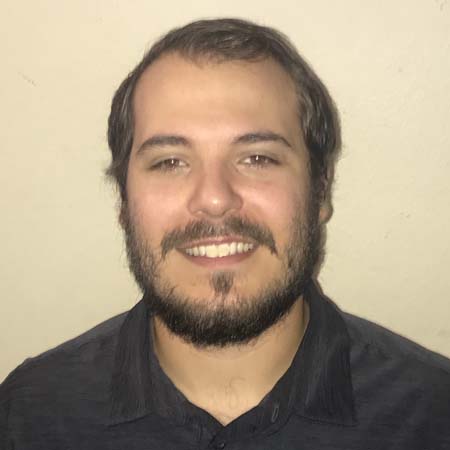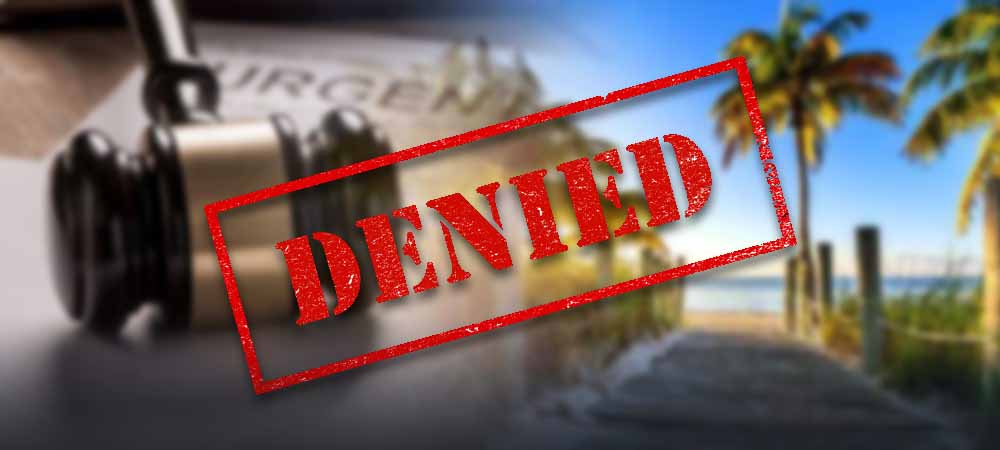*edit: Near the bottom of the article, we claimed the “Florida Sports Betting Initiative” was sponsored by Florida Voters In Charge. The initiative is sponsored by Florida Education Champions.*
- Federal district court judge Dabney Friedrich ruled that the gaming compact between Florida and the Seminole tribe violates the Indian Gaming Regulatory Act Monday.
- The decision renders the entire gaming compact no longer legally enforceable, meaning the Seminole Tribe’s Hard Rock Sportsbook App will no longer be permitted to operate.
TALLAHASSEE, Fla. – Florida online sports betting fans were dealt some bad news Monday as federal district court judge Dabney Friedrich ruled that “sports betting will need to cease in the Sunshine State”. This is because the gaming compact between the state of Florida and the Seminole Tribe violates the Indian Gaming Regulatory Act (commonly known as IGRA).
The ruling in the case – West Flagler Associates V. Haaland – effectively means that the entirety of the new Seminole compact is no longer legally enforceable in Florida and thus null and void.
This also means that the planned expansion of the tribe’s retail gaming offerings, which was to include roulette and craps, will no longer move forward. The state will also no longer receive the planned $2.5 billion over five years from the Seminole Tribe in exchange for the exclusivity agreement.
In Friedrich’s written opinion, she reasoned that:
- “It is well-settled that IGRA authorizes sports betting only on Indian lands. It is equally clear that the Secretary must reject compacts that violate IGRA’s terms.”
- “Most locations in Florida are not Indian lands, which IGRA defines to mean lands “within the limits of any Indian reservation,” “held in trust by the United States for the benefit of any Indian tribe,” or “over which an Indian tribe exercises governmental power,”
- “And although the Compact “deem[s]” all sports betting to occur at the location of the Tribe’s “sports book(s)” and supporting servers, this Court cannot accept that fiction.”
The last line refers to the Seminole Compact’s “hub-and-spoke” system, which placed the sportsbook’s servers (which all bets were processed through) on tribal lands.
This was the Florida sports betting attempt to work around IGRA and allow for legal mobile sports betting throughout the state.
The decision comes as a surprise in the legal and sports betting communities – legal experts largely believed that Friedrich would follow her North Florida District counterpart and dismiss the case on lack of standing.
President Joe Biden even went on record with his opposition to the case.
So What Now?
It is very likely that the Seminole Tribe almost immediately does two things: first, appeal the decision to a higher court; and second, request what is known as a “stay” on the decision. A stay is the temporary stopping of a judicial proceeding through an order of the court.
There are two types of stay orders that a court can issue, but the Seminole Tribe will likely request a stay of execution. This type of stay order postpones the enforcement of a judicial decision, which would allow the tribe’s Seminole Hard Rock Sportsbook app to continue to operate until the stay order expired.
Under Rule 62 of the Federal Rules of Civil Procedure, all civil judgments are stayed for 10 days after the decision is rendered, meaning the Hard Rock Sportsbook app will be allowed to operate for 10 days from the day the decision was rendered by default.
Is A Ballot Initiative Florida’s Best Chance At A Sports Betting Industry?
Besides the appeal and request of stay, there are still a few routes that the state could take to get the ball rolling again on legal sports betting in FL. Friedrich noted that a new compact could be drafted, but it would need to restrict mobile sports betting to those physically located on tribal lands – this would be less than ideal for all parties involved.
The other option would be for sports betting to be legalized via a “citizen’s initiative,” which would be voted on via referendum.
The latter option is by far the best chance Florida has for hosting a legal sports betting industry, as there is a proposed amendment that would legalize the industry already set to be on the 2022 ballot.
The initiative, known as the “Florida Sports Betting Initiative,” would, according to the bill’s summary:
“Authorize sports and event betting under Florida law at professional sports venues and pari-mutuel facilities and statewide via online sports betting platforms by entities authorized to conduct online sports betting, and by Native American tribes with a Florida gaming compact, only for persons age 21 years or older. Require legislative action to regulate sports betting. The legislature may tax betting revenues, and all such taxes are required to supplement the Educational Enhancement Trust Fund.”
The initiative, sponsored by Florida Education Champions and supported by DraftKings and FanDuel, has been perceived positively. With experts stating that the amendment would generate a substantial amount of additional revenue for the public education system without raising taxes, there is broad support and a clear interest among constituents.
The Florida Sports Betting Initiative may be Florida’s best chance at a full-service regulated sports betting industry moving forward.
Advertising Disclosure
In order to provide you with the best independent sports betting news and content LegalSportsBetting.com may receive a commission from partners when you make a purchase through a link on our site.
News tags: Dabney Friedrich | DraftKings | FanDuel | Florida | Florida Educational Enhancement Trust Fund | Florida Sports Betting Initiative | Florida Voters In Charge | Florida-Seminole Gaming Compact | Indian Gaming Regulatory Act | Seminole Hard Rock Sportsbook App | Seminole Tribe of Florida | West Flagler Associates V. Haaland

Jerad has been a welcomed addition to the LegalSportsBetting.com writing team. Covering topics regarding the expansion of sports betting in the US, Jerad focuses on legislative efforts, bill signings and other methods for sports betting legalization. Finishing his education as a college baseball player, Jerad has first-hand knowledge of competitive sports, paired with years of personal sports betting as well. As a political science major at the University of Central Florida, Jerad covers the political, legal, and legislative aspects of sports gambling without any issues.



 College Football Betting
College Football Betting Best Online Sports Betting
Best Online Sports Betting Best Legal NFL Betting
Best Legal NFL Betting States With Legal Sports Betting
States With Legal Sports Betting Sports Betting Events
Sports Betting Events




